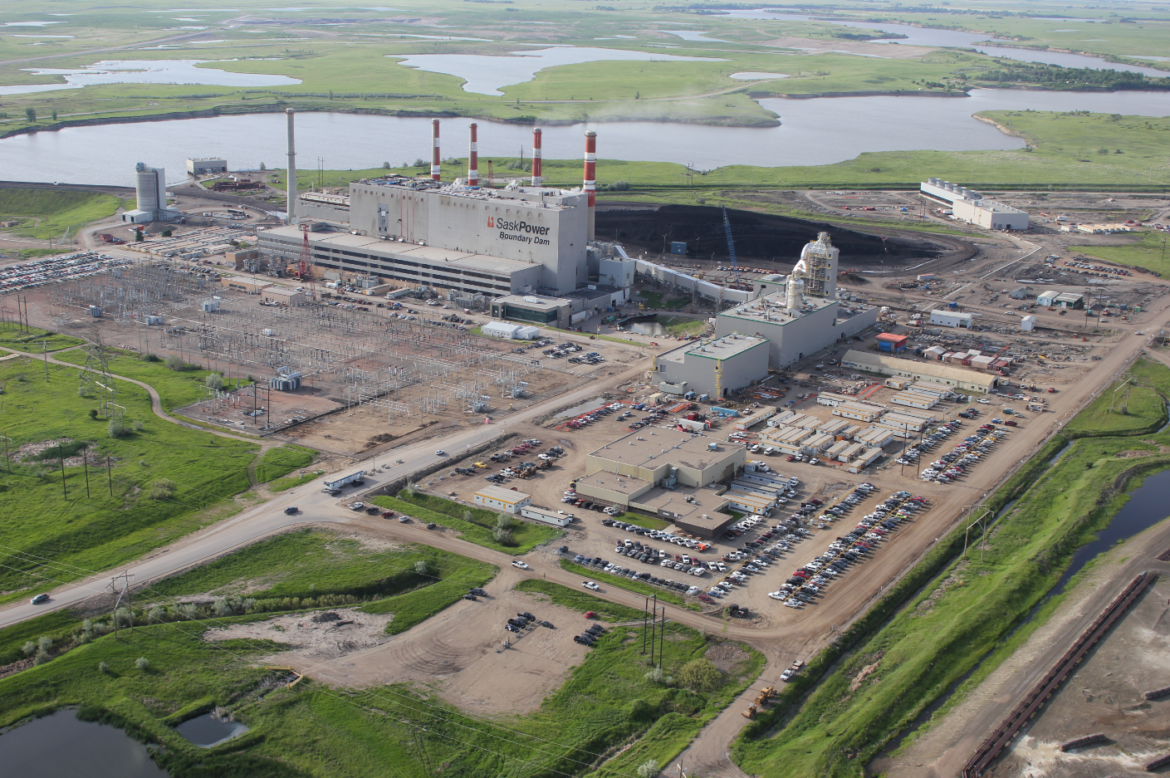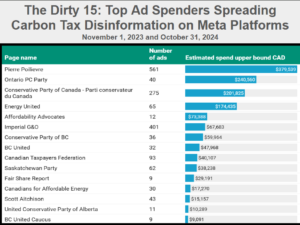
Image Source: http://saskpowerccs.com/ccs-projects/boundary-dam-carbon-capture-project/
LASER TALK: Saskatchewan, CCS and Carbon Pricing
Carbon capture and sequestration (CCS) is the process of trapping the carbon dioxide produced by burning fossil fuels or any other chemical or biological process, and storing it in such a way that it is unable to affect the atmosphere.
In Saskatchewan, coal accounts for 44 per cent of their fuel and produces 70 per cent of the greenhouse gas (GHG) emissions [1]. Saskatchewan is the largest emitter of greenhouse gases (GHGs) on a per capita basis in the country — about 70 tonnes for every man, women and child in the province [2].
Premier Brad Wall of Saskatchewan says he is already pricing carbon because Saskpower “sells” the pollution it captures at the Boundary Dam Project in Estaven to big developers like Cenovus Energy to enhance their oil recovery efforts [3].
Premier Wall is right to be proud of Saskatchewan’s cutting edge carbon capture and sequestration technology (CCS) because, the fact is, the world needs carbon CCS to avoid catastrophic climate change [4]. Saskatchewan has taken huge risks on a very expensive technology at a time when countries such as Britain have shut down their CCS research [5]. Shell estimates a carbon price of $60-80 justifies the cost of CCS [6].
However groundbreaking the Boundary Dam project is, it does not keep up with the size of Saskatchewan’s GHG emissions [2]. The province of Saskatchewan, needs to use other mitigation strategies besides CCS such as regulation or carbon pricing. In April 2016, the chair of Canada’s Ecofiscal Commission, Dr. Chris Ragan openly stated to Premier Wall, “If you have a stated goal to reduce greenhouse gas emissions — and Saskatchewan does — the most cost-effective way to do it is carbon pricing. Period.” [7]
In conclusion, a predictably increasing carbon price will send a clear market signal, which will entice entrepreneurs and investors to put money into the new clean-energy economy, including CCS.
REFERENCES
[3] http://www.cbc.ca/news/canada/saskatoon/carbon-pricing-bypass-wall-1.3524686
[4] https://www.ipcc.ch/pdf/assessment-report/ar5/wg3/ipcc_wg3_ar5_full.pdf
[7] http://www.cbc.ca/news/canada/saskatoon/carbon-pricing-bypass-wall-1.3524686











